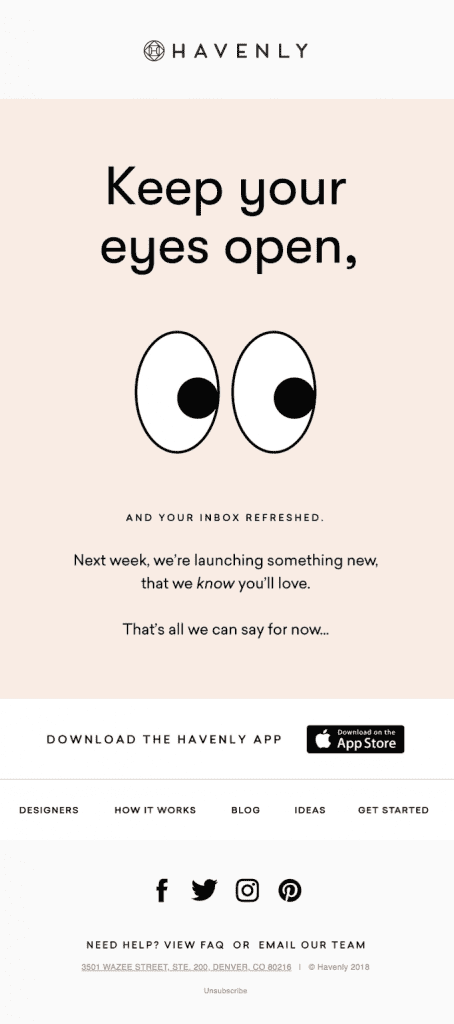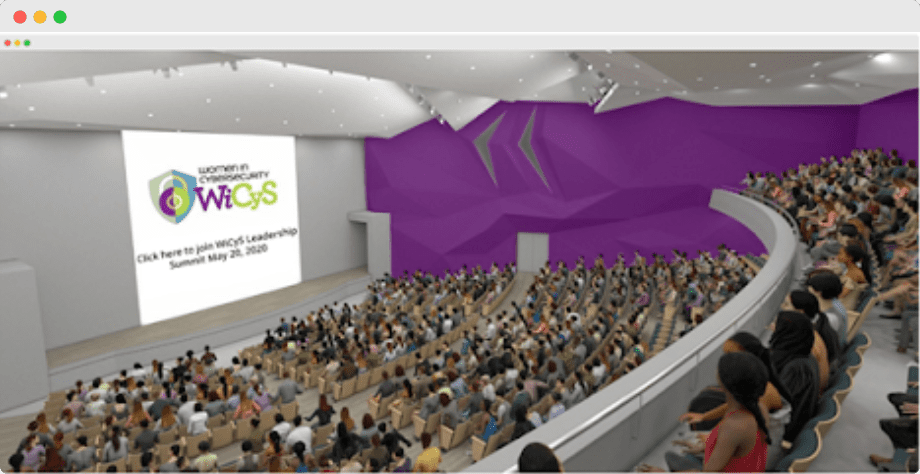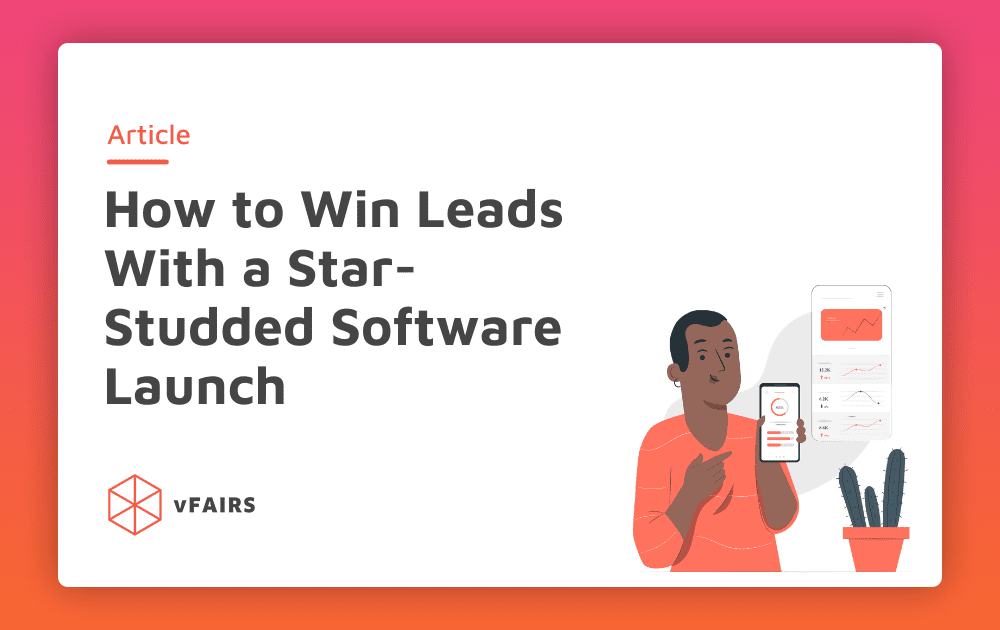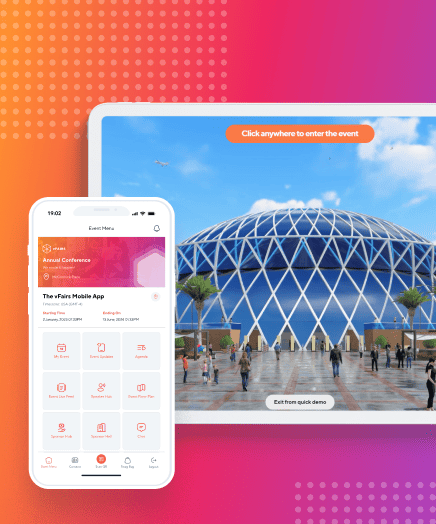Let’s consider the story of two fictional software applications.
Application A was a new product entering an already competitive space. The team was ecstatic by the potential of their product but knew that the launch needed to be executed carefully. It had to both catch attention and find a niche for the product.
Now, consider Application B. This product team had a novel idea — something no one was doing in their industry. To truly become the pioneers, they wanted to launch as early as possible.
Here’s a look at each of their product launch strategies.
- Application A takes two months to plan a complete product launch with their entire marketing collateral. Clear benefits, clear positioning, clear messaging.
- Application B does a press conference in advance of the launch, talking about the breakthrough their application has made and how it’ll revolutionize the industry. Big words, big benefits, big mystery.
As you would’ve probably guessed by now, App A was the new competitor on the block that grabbed instant attention! Over time, they scored a sizable market.
And App B? Well, attendees at the launch were confused… Did they really need this? Soon, App B was forgotten like scores of other apps launching every day.
When it comes to a successful software product, development is only half the work. What really makes or breaks your success is how well you market it and make your prospects care about it.
This means designing a power-packed product launch. And we’re about to break down the process for you.
1. Understand your customer
We start with understanding the customer. In case you’re wondering why this is important for a product launch (didn’t we do enough market research prior to development?!), hold that thought for a bit.
While market research prior to development helps understand the needs of the customers, speaking to them directly prior to a product launch gives companies a more up close and personal insight into their pain points. Most importantly, you identify the language they use to describe their struggles and the way they prioritize their needs.
This process can do a great deal for strengthening your sales message. Use the phrases and expressions your target audience uses, focus on needs from most important to least important, and speak to the audience in a way that connects the best with them.
And it really doesn’t need to be anything elaborate. Just sit down with a small focus group of 10-15 people for a chat and let the subjects do the talking.
2. Test, test, and test!
With software products, bugs are a plague. No matter how rigorously your QA team tests it, your customers will still encounter a few after launch.
The solution? Both alpha and beta testing.
An alpha test is when your internal team and power users test the application. In this phase, most companies will give a set of tasks to the subjects. Then, they’ll assess how easy it was for the subjects to complete them. Some companies will even incentivize bug hunting, giving prizes to employees that report the most bugs.
This is followed by a beta test which has a much larger pool. In this phase, your actual users can opt as testers and are free to play around with the app however they like. They use the app, experience the modules, and report bugs as are reported.
3. Find an interactive and immersive virtual event platform

A key component of your launch campaign is a marquee event, where you can announce your product and share important information with your audience. You’ll need a virtual event platform to successfully host your virtual software launch. This is going to be your ‘event venue’. And while there are tons of products available on the market, not all of them are created equal.
Here are some of the most important features for successful virtual product launches:
- 3D event spaces that transport attendees to the venue.
- Live and recorded sessions that enable attendees to interact with the speaker.
- Event marketing features to bring more people to the event, like email marketing and landing pages.
- Networking features to help attendees engage with others at the event.
- Order module to accept orders on the spot.
- Data analytics to collect lead information.
- Customizations for event branding.
4. Advertise your product launch online
People will only make it to the event if they first hear about it. For this reason, you’ll need to invest some time and effort into marketing the event.
 Source: Havenly
Source: Havenly
Let’s take a look at some of the most popular event marketing channels:
- Email: Send out announcement emails to your existing email list via email marketing. Schedule reminders ahead of the launch so more and more people sign up for the event. A reminder 15 minutes before the event will boost your attendee count.
- Press release: Send out a press release ahead of time to announce your launch.
- Social: Advertise on social media and drop hints on all your channels. This is a great way to build anticipation and hook your prospects in.
- Sticky bar: A sticky bar across your site will help inform other visitors about the upcoming launch.
- Landing page: Publish event details on a landing page so prospects can learn everything they need to know before the event.
5. Promote the event on the landing page
Every virtual event needs an impactful landing page at its entrance. This page will serve two purposes:
- Display the registration form to traffic coming in from all your marketing efforts
- Provide event details to prompt registrations
These two objectives are very important in driving sign-ups. For this reason, make it visually appealing and captivating. Add event details and a clear agenda.
You will also need to make sure that the registration form is very concise, rather than being a hurdle to entry. All these steps will help you optimize your landing page for conversions! Learn how you can design effective landing pages for your virtual software launch.
6. Customize your event appearance

Branding is crucial for a virtual software launch as you want your attendees to remember you well. Use your virtual event platform to add and customize different rooms. Add logos wherever you can, use standees to market your services, and color code as per your branding guidelines.
7. Prepare live or recorded demos

Depending on your ease, choose between live and pre-recorded product demos. Either way, make sure that they’re both interactive and engaging.
You’ll need to get in touch with your speakers beforehand and discuss the agenda of each session. This will help you align the content with the needs of your customers.
During the sessions, be sure to take questions and encourage participation. The more engaging your event, the more invested your attendees will be in your product.
8. Create marketing collateral
Your virtual event will also need marketing collateral to nurture incoming leads. Create videos covering various use cases or explaining the features of the products. Publish product specification documents and install instructions, whatever you’d like. Your virtual event platform should allow you to upload these and let attendees save them as well.
Conclusion
For any successful product launch, you need to have a solid plan before you make any announcements. This will include:
- Speaking to prospects and understanding how they express their needs
- Testing the application thoroughly to catch any overlooked bugs
- Using a dynamic virtual environment that lets you launch your product the right way
- Devising a multi-channel marketing strategy for your product launch
- Customizing the event to represent your brand
- Getting ready for your speaker sessions
- Creating videos and product documents to educate attendees in an engaging way
And with that, you’ll be ready for a successful virtual software launch that wins you leads right from the get-go!
Thinking of hosting a virtual event?
Learn how we can make your next virtual event experience unforgettable


